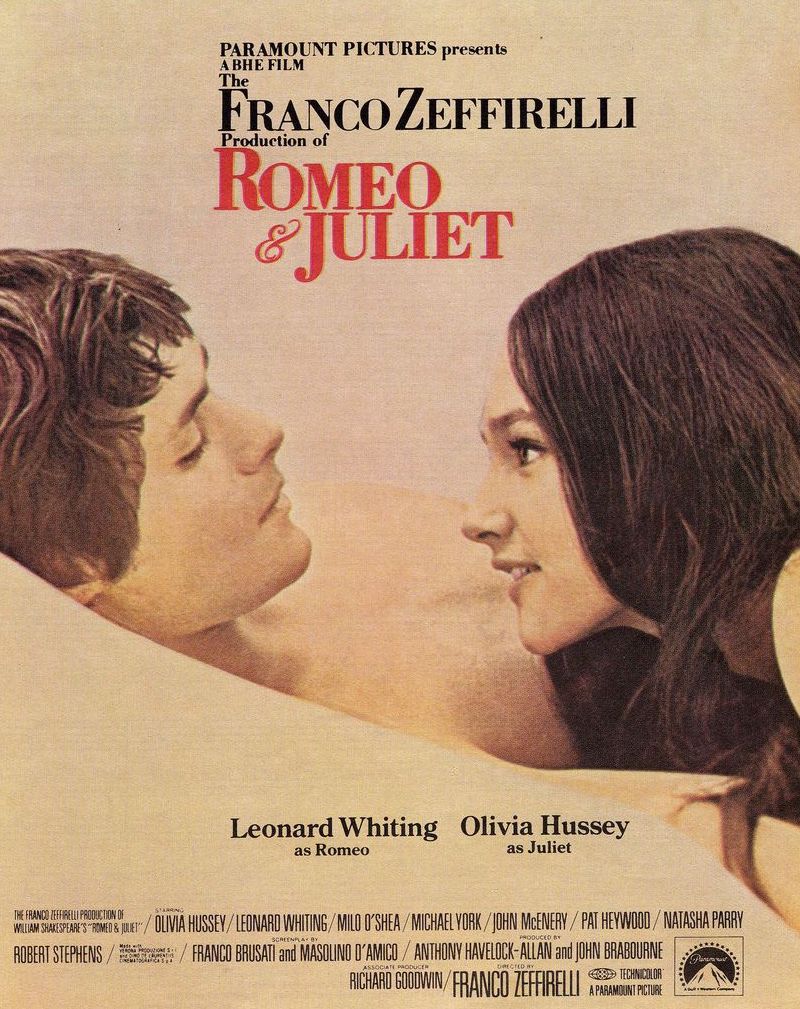Franco Zeffirelli, the Italian director known for his interpretations of the work of the Bard on film and onstage, died Friday in Rome following a long illness. The filmmaker, one of the only living people shown to have been directly descended from Leonardo da Vinci (1452-1519), was 96.

Born outside Florence, Italy, on February 12, 1923, to parents engaged in adulterous affairs, his surname was unique to him — and the product of a mistake; it was supposed to be Zeffiretti, but was misspelled.
After his mother's death when he was 6, he was raised among the Scorpioni, sharp-tongued English women who were expatriates.
He fought in WWII and served as an interpreter for British forces, studied at the University of Florence and became a painter with inclinations toward the stage. He was hired as an A.D. on La Terra trema (1948), a film by the great Luchino Visconti (1906-1976), pulling him into the world of film, where he generally assisted other geniuses while working in theatre directing plays internationally.
Known for his operatic productions and design sense, he made his debut as a film director with The Taming of the Shrew (1967), starring Elizabeth Taylor (1932-2011) and Richard Burton (1925-1984).
His follow-up was another Shakespeare piece — Romeo and Juliet (1968) with Leonard Whiting (b. 1950 and Olivia Hussey (b. 1951), a smash hit with moviegoers that made its director a star and that is still one of the most beloved adaptations of the play.
He established himself as a respected interpreter of religious themes with Brother Sun, Sister Moon (1972), about St. Francis of Assisi (1181/1182-1226) and the enormously popular U.S. miniseries Jesus of Nazareth (1977).
In 1979, he triumphed with the tear-jerking The Champ, a contemporary boxing movie, but sank with Endless Love in 1981, a tawdry romantic drama with Brooke Shields (b. 1965) and Martin Hewitt (b. 1958).
Following a string of filmed operas, he directed Mel Gibson (b. 1956) and Glenn Close (b. 1947) in Hamlet, and returned to form in 1996 with his successful take on Jane Eyre.
His last features were the quirky Tea with Mussolini (1999), featuring Cher (b. 1946), Judi Dench (b. 1934), Joan Plowright (b. 1929), Maggie Smith (b. 1934) and Lily Tomlin (b. 1939), and Callas Forever (2002), starring Fanny Ardant (b. 1949) as Maria Callas (1923-1977).
Zeffirelli, a conservative, served as an Italian senator (1994-2001) for the center-right Forza Italia party, and sided with the Catholic Church on gay issues, in spite of coming out as "homosexual" (not "gay") in 1996.
Late in life, he legally adopted as his sons two adult men who had worked and lived with him.
Zeffirelli was recently (2018) in the news during the peak of the #MeToo wave, when actor Johnathon Schaech (b. 1969) publicly accused the director of sexually assaulting him during the filming of the 1993 Italian drama Sparrow. Zeffirelli was also accused of sexually harassing Bruce Robinson (b. 1946) when Robinson, who went on to become a well-known director, was acting in Romeo and Juliet. Zeffirelli denied both accusations.





